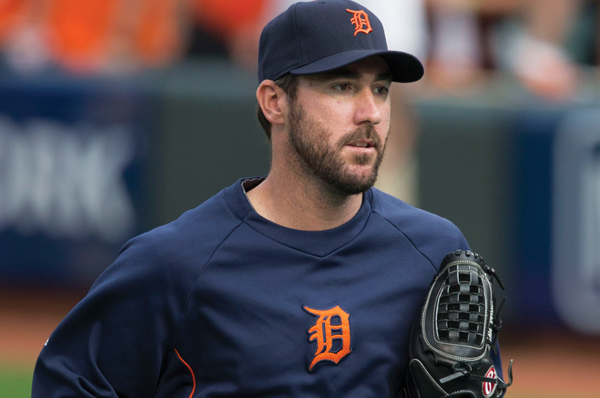 By all accounts, Justin Verlander has led a storied life as a professional athlete, earning $28 million this year as a pitcher for the World Series champion Houston Astros.
By all accounts, Justin Verlander has led a storied life as a professional athlete, earning $28 million this year as a pitcher for the World Series champion Houston Astros.
The Virginia native set the salary record for pitchers when he signed a $202 million extension contract with the Detroit Tigers in 2013, for whom he was considered an ace in four consecutive American League Central Division championships. He married his sweetheart, actress and model Kate Upton, in Tuscany, Italy, this past November.
But despite all the good fortune, Verlander was as vulnerable as the rest of us when he put his trust in Kenneth Tyrrell, a former financial advisor who consented to an industry bar by the Financial Industry Regulatory Authority last week.
Tyrrell, a 23-year industry veteran and former UBS Financial Services broker whose clients included Verlander, accepted the industry bar after failing to disclose more than a dozen private securities transactions and outside business activities with Verlander.
Tyrrell, discharged by UBS in August 2016, participated in 11 private securities transactions and four outside business activities without informing the firm, according to a letter of settlement issued by Finra.
Tyrrell transferred about $498,000 from Verlander’s UBS accounts to pay for goods and services coordinated by the concierge services company that the broker’s wife launched in 2013, according to the Finra consent letter.
After Verlander questioned the transaction in June 2016, Tyrrell returned about $130,000, the consent letter said.
The Vienna, Va.-based broker’s failure to disclose the investments and businesses violated UBS policies and regulatory rules, the consent letter said.
Tyrrell’s attorney, Jeffrey F. Robertson of Schulte Roth & Zabel in Washington, D.C., declined to comment. Verlander’s sports agency did not respond to a request for comment.
What is clear, however, is that the star pitcher’s losses could have been significantly worse given Tyrrell’s involvement in Verlander’s businesses, trusts, a personal charity and his investment portfolio.
Tyrrell, who accepted Finra’s bar without admitting or denying its findings, was an officer of holding companies for Verlander’s outside investments and operated a company that provided “personal services” to the client, according to the consent letter. He also co-founded a company in which the client invested, it said.
The broker has served as trust protector and successor trustee for Verlander’s family trust, according to his BrokerCheck record.
Tyrrell was also a board member of Wings for Warriors, a charity Verlander founded. Tyrrell reported his position under the “other business activities” section of his BrokerCheck report.
Advisors who don’t report their outside business activities are increasingly becoming an issue for B-Ds and investors, especially when they solicit and invest client money in their “outside” ventures and businesses. Finra fined and suspended two former Merrill Lynch brokers for failing to report their bar and whiskey distillery businesses.
Brokers’ undisclosed business activities and private securities transactions conducted “away” from a firm and without their knowledge “may expose both firms and customers to potential risks,” according to a Finra report on broker violations released last week.
Outside business activities and private securities transactions can “potentially involve misconduct or create conflicts of interest that may expose both firms and customers to potential risks,” Finra said in the report on issues examiners have uncovered at B-Ds.
Tyrrell was terminated by UBS in August 2016 because he failed to disclose “outside activities and investments, failed to disclose a conflict of interest regarding his wife’s business that serviced a client of the firm and engaged in selling away, all in violation of firm policy,” according to a report on Tyrrell from the SEC’s IARD report.
Despite the pending Finra investigation, he went on to work at Cary Street Partners until September 29, when he “voluntarily resigned.”
The only other blemishes on Tyyrell’s record date back to 2001, when he was a broker with First Union Securities Inc. and two customer complaints regarding unauthorized trades and unsuitability were denied by the firm for lack of evidence. First Union Securities became Wachovia Securities after First Union Corp. acquired Wachovia Corp. in 2001 in what was billed as a merger of equals. The combined company kept the Wachovia name.